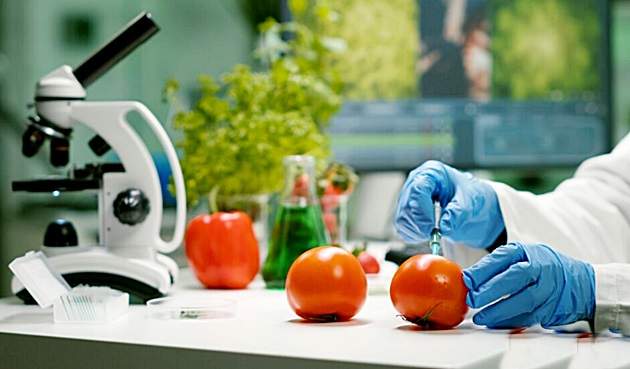713

The National Phytosanitary Authority (ANF) conducts rigorous annual inspections to verify pesticide residues in fruits, vegetables, and cereals produced in Romania.
Thus, within the laboratories for pesticide residue control in plants and plant products under ANF, analyses were conducted in 2024 according to the national monitoring program, thematic control programs, the de minimis program approved by the Government, and upon request from producers or traders for self-monitoring.
In 2024, a total of 4,382 samples were analyzed, of which:
- 3,624 samples were part of the official monitoring control, and
- 754 samples were analyzed upon request.
It should be noted that, at the beginning of 2024, the National Monitoring Plan of the National Phytosanitary Authority included the analysis of 2,245 samples. By comparison, in 2023, ANF analyzed 3,691 samples (2,989 under official control and 702 upon request), while the number of samples planned at the beginning of 2023 was 2,225.
Results of the 2024 Sample Analyses
Out of the 4,382 samples analyzed, only 35 samples (0.80%) contained pesticide residues exceeding the Maximum Residue Limit (MRL), as follows:
- 7 samples of tomatoes
- 5 samples of green onions
- 4 samples of spinach
- 3 samples of strawberries
- 2 samples of dill
- 2 samples of parsley
- 2 samples of celery leaves
- 2 samples of corn
- 2 samples of lettuce
- 2 samples of peppers
- 1 sample of apples
- 1 sample of green beans
- 1 sample of eggplant
- 1 sample of wheat
Plans for 2025
For 2025, ANF aims to analyze over 2,500 samples of cereals, fruits, and vegetables as part of the National Monitoring Program.
In addition, ANF will conduct various thematic control programs throughout the year, focusing on seasonal fruits and vegetables (greens, tomatoes, peppers, strawberries, melons, peaches, etc.). Furthermore, ANF will continue performing analyses at the request of producers or traders, as in previous years.
Thus, ANF's target for 2025 is to exceed 5,000 analyzed samples in total.
Through these measures, the Ministry of Agriculture and Rural Development, via the National Phytosanitary Authority, aims to ensure that domestically produced vegetables, fruits, and cereals meet compliance and safety standards for public consumption.




